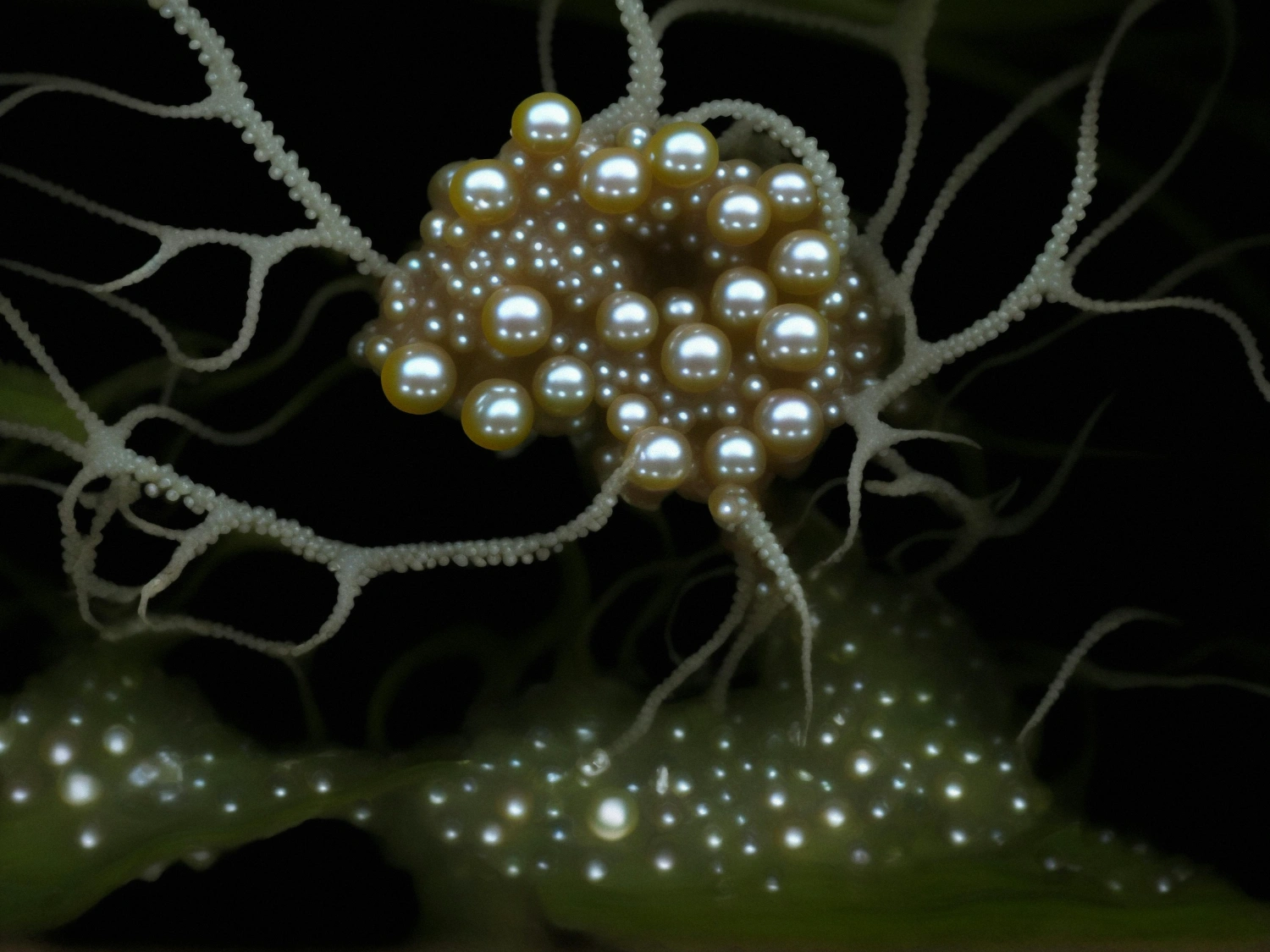In The Book of Flowers at Union Pacific, London, Agnieszka Polska reimagines human history through a speculative myth of symbiosis, blending AI-generated imagery with archival footage to challenge nature-human divisions.
In this world, the human body is no longer autonomous but deeply enmeshed in the botanical cycle—nectar pulses through veins, reproduction depends on the fertile embrace of flower cups, and the male lover’s sacrifice becomes the foundational myth. Polska’s vision reorients our understanding of human lineage, supplanting narratives of dominion over nature with an ancient, forgotten history of symbiosis and surrender.
The work’s visual language, a seamless fusion of early botanical timelapse films and artificial intelligence-generated imagery, resists conventional storytelling. It does not merely depict nature; it absorbs the viewer into a pulsating, hybridized world where boundaries blur between the organic and the technological. Narrated in the measured voice of Tina Greatrex, Polska’s film unfolds like a recovered truth—one that questions the ideological scaffolding of modernity, in which human and nature have been forcibly disentangled. In its dreamlike cadence, The Book of Flowers exposes the violence embedded in narratives of human progress and civilization.
Set against the grandeur of Charles-Marie Widor’s Symphony No. 5 Toccata for Organ, Polska’s work reaches beyond a mere ecological critique. It gestures toward a cybernetic consciousness—one that recognizes the deep entanglement of bodies, systems, and histories. The film does not offer a utopian vision but rather a mirror: a reflection of the stories we have chosen to tell about ourselves and the ones we have erased. Beneath the glistening petals of prehistoric flora, The Book of Flowers asks what it means to belong, to be entangled, and ultimately, to surrender to forces greater than ourselves.















